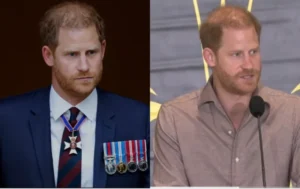Introduction to the Event
The Taylor Swift Eras Tour stands as a remarkable phenomenon in contemporary pop culture, showcasing the evolution of Swift’s musical journey across her extensive career. Launched in 2023, the tour has garnered significant attention not only due to Swift’s profound influence as an artist but also for its ability to resonate with diverse audiences. Each concert provides attendees a unique experience, inviting them to traverse through various milestones in Swift’s career, including her hit songs from different albums, and an elaborate production that captures her artistic evolution over the years.
The significance of the Eras Tour extends beyond mere entertainment; it has become a cultural event that symbolizes the power of music in bridging generational divides. Swift’s ability to articulate themes of love, heartbreak, and personal growth through her lyrics has established her as a relatable figure for many fans worldwide. Consequently, her concerts have often been described as communal experiences, where individuals come together to celebrate shared emotions and milestones in their lives.
On the heels of this vibrant cultural experience, Ivanka Trump’s attendance at the concert has drawn considerable media attention, particularly against the backdrop of her father, Donald Trump’s, recent controversial social media post. The timing of her appearance raises questions regarding the intersection of celebrity, politics, and public perception. The unusual pairing of political figures with pop culture events like the Eras Tour emphasizes the multifaceted nature of modern society, where space for artistry and politics often intertwine, inviting varied reactions from the public. Swift’s concert, undeniably a spectacle of music and performance, serves as a fitting backdrop for this unfolding narrative in the realm of celebrity and political discourse.
The Controversial Post by Donald Trump
In recent weeks, a post made by former President Donald Trump stirred significant controversy and public discourse. The content of the post, which many perceived as a manifestation of ‘hate,’ sparked widespread reactions across social media platforms, igniting debates not only about its implications but also about the broader political climate. This post, characterized by inflammatory language against specific groups, garnered criticism from various quarters, including political analysts, social activists, and everyday citizens.
The reaction to Trump’s post was swift and robust, leading to numerous discussions about the ramifications of his words. Many commentators suggested that such rhetoric could further polarize an already divided society, while others argued that it played into a narrative consistent with Trump’s past communications. Mainstream media outlets also covered the incident extensively, framing it within the context of Trump’s prior controversial statements and their effects on public perception of him and his family.
As the political milieu evolved, many began to scrutinize the implications of these controversies on Ivanka Trump, who attended Taylor Swift’s Eras Tour shortly thereafter. Analysts speculated that this concert appearance was strategically timed, possibly intended to portray a more relatable and personable image as public controversies swirled around her father. Observers noted a juxtaposition between the light-heartedness of her concert attendance and the seriousness of the political climate ignited by Donald Trump’s rhetoric. The combination of these events cultivated a perception that Ivanka’s actions were a form of distancing from her father’s increasingly turbulent political narrative.
As public sentiment continued to shift, the Trump family’s brand grappled with the consequences of such polarizing communications. The discourse around the impacts of Donald Trump’s post on Ivanka’s public outings exemplifies the intricate relationship between political actions and public perception, contributing to an ongoing dialogue about the responsibilities of public figures in today’s charged environment.
Ivanka Trump’s Experience at the Concert
Ivanka Trump recently attended Taylor Swift’s highly anticipated Eras Tour, an event that has captured the attention of fans and critics alike. As the daughter of former President Donald Trump, Ivanka’s presence at a concert by an artist known for her progressive stance has sparked much discussion. The juxtaposition between her family’s political life and her choice of entertainment adds a layer of intrigue to her public image.
During the concert, Ivanka was seen enjoying the vibrant atmosphere alongside fellow attendees, which included a mix of fans from various backgrounds. Her enjoyment was apparent, as she shared glimpses of the experience on her social media accounts. Posts featuring moments from the concert were met with a range of responses, highlighting the divide between political affiliations and personal interests. While some applauded her for embracing popular culture, others expressed criticism, pointing out the perceived contradictions in aligning with artists who often voice dissenting opinions against her family’s political legacy.
In the days following the concert, Ivanka made several public statements regarding her attendance, emphasizing the importance of music as a unifying force. She noted that, regardless of differing views, music has the power to bring people together and create shared experiences. This sentiment resonated with many, particularly in a time when the cultural landscape is often polarized. By engaging with Taylor Swift’s fanbase, Ivanka Trump’s choice reflects a nuanced aspect of her identity, where personal preferences intersect with her family’s political realities.
Ultimately, Ivanka’s attendance at the Eras Tour serves as a reminder of the complex relationship between entertainment and politics, illustrating that personal passions can exist independently of public personas. Her ability to navigate these nuances showcases the multifaceted nature of her public identity amidst ongoing debates regarding political affiliations and cultural values.
Public and Media Reactions
The attendance of Ivanka Trump at Taylor Swift’s Eras Tour has elicited a variety of reactions from both the public and media. Following her father’s controversial remarks, which have drawn significant criticism, many were quick to scrutinize her presence at such a highly publicized event. Social media platforms served as the primary battleground for differing opinions. Some individuals expressed outrage, linking her participation to the larger context of her father’s policies and commentaries that have polarized the nation. Hashtags aimed at both Ivanka Trump and the concert quickly trended, illustrating the nexus between celebrity culture and political expression in today’s society.
Conversely, there are those who defended her right to enjoy a concert without the encumbrance of her father’s political legacy. Supporters suggested that enjoying cultural events like a concert can serve as a unifying experience, transcending the divisive political landscape. Political commentators weighed in as well, some suggesting that her attendance reflects an evolving narrative within the Trump family, potentially signaling a search for normalcy amid swirling controversies. Others argued that this event highlights how celebrities and their environments often blend together, regardless of the surrounding political climate.
Furthermore, political analysts pointed out that Ivanka Trump’s presence at such a high-profile and widely attended concert underscores the complexities of celebrity culture in an era of intense public scrutiny. Her attendance did not simply generate discourse about her role within the Trump family but sparked broader conversations about societal divisions and the interplay of entertainment and politics. The intersection of these themes showcases the profound impact of individual actions in shaping public perception, revealing the intricate layers of identity and affiliation as they exist in a highly divided political landscape.




